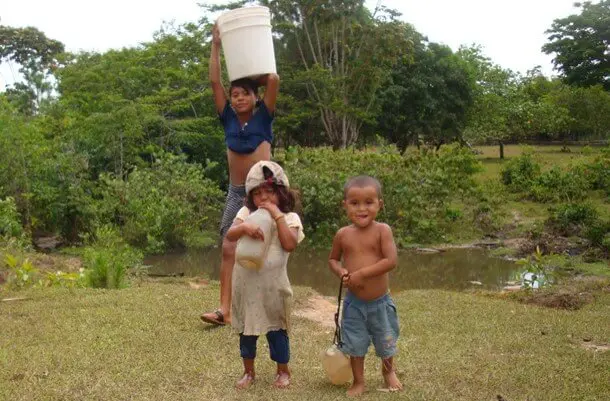Central American countries develop policy guidelines for inclusive, sustainable and equitable rural WASH
Rural communities and indigenous peoples remain overrepresented among the Central American population without access to water and sanitation services. In Panama City, 30 May – 1 June, governments from the region met with experts to develop regional guidelines for rural WASH policies that will help them to overcome this breach. WGF supported the process with expert advice on inclusion and equity.
In Central America most of the countries in the region reached the MDG target on water and sanitation, yet approximately 3 million people still lack water access and 7.5 million lack access to sanitation. Of these, more than 80% without water and 60% without sanitation live in rural areas and marginalised groups, such as indigenous people, are substantially overrepresented. In some countries indigenous peoples have less than half the level of access to sanitation and 30% percent lower access to water than non-indigenous populations. Thus, to achieve universal access to water and sanitation national governments it is essential to put rural and marginalised communities centre stage.
The Water and Sanitation Forum for Central America and the Dominican Republic (FOCARD-APS) and the World Bank’s WSP organised a three day workshop bringing together governmental representatives from Costa Rica, El Salvador, Guatemala, Honduras, Nicaragua, Panama and the Dominican Republic to develop regional policy guidelines for inclusive, sustainable and equitable rural WASH services.
WGF’s Moa Cortobius supported the countries, as part of a group of external experts invited to the workshop, presenting examples of good practices to promote gender equality and women’s empowerment in WASH and sharing the Facility’s work on an intercultural approach in rural WASH projects.
The guidelines developed by the participants were centred on five focus areas:
- Institutional framework, sector plans and policies
- Financing and investment plans
- Sustainable service provision
- Development and strengthening of local capacities
- Equality and inclusion
- Monitoring and evaluation
It was recognised that many relevant experiences and pilot projects exist among the countries, but that they need to be scaled up and integrated in national planning and practice. Key elements identified for moving forward include:
- differentiated and inclusive rural WASH policies and plans,
- institutionalisation of continuous technical support and capacity building to rural small-scale service providers, and
- access to reliable and disaggregated data.
The next step will be to consolidate the list of regional guidelines, so that it can be presented and endorsed at the national level – ensuring political support and maintained investments to expand the services to the unserved.









